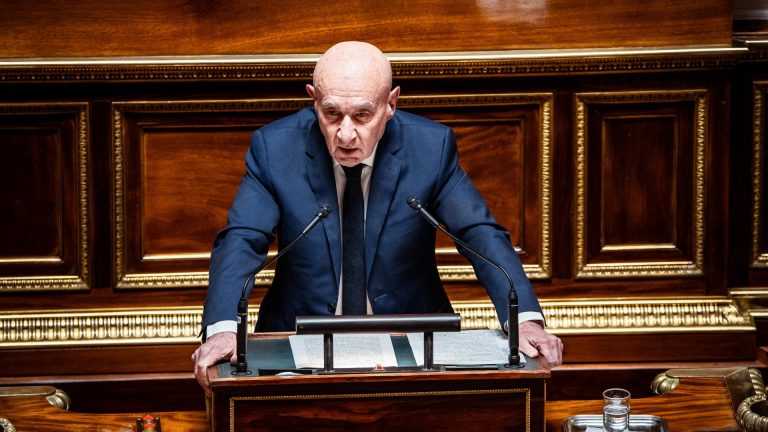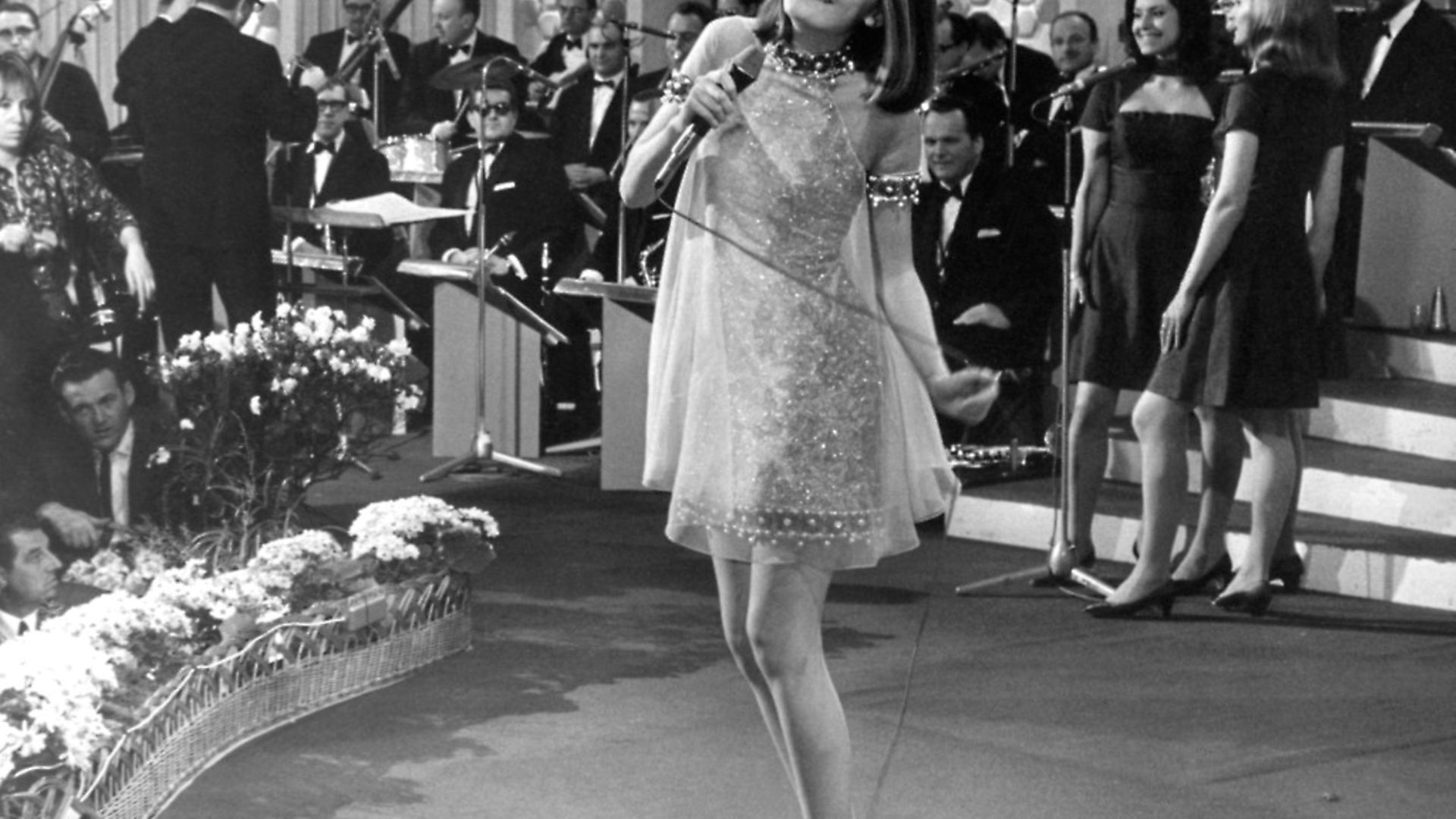
With the UK entry in Lisbon this weekend unlikely to go with a boom-bang-a-bang, Roy Delaney investigates the reasons behind Britain’s malaise and wonders whether the country can transform its fortunes
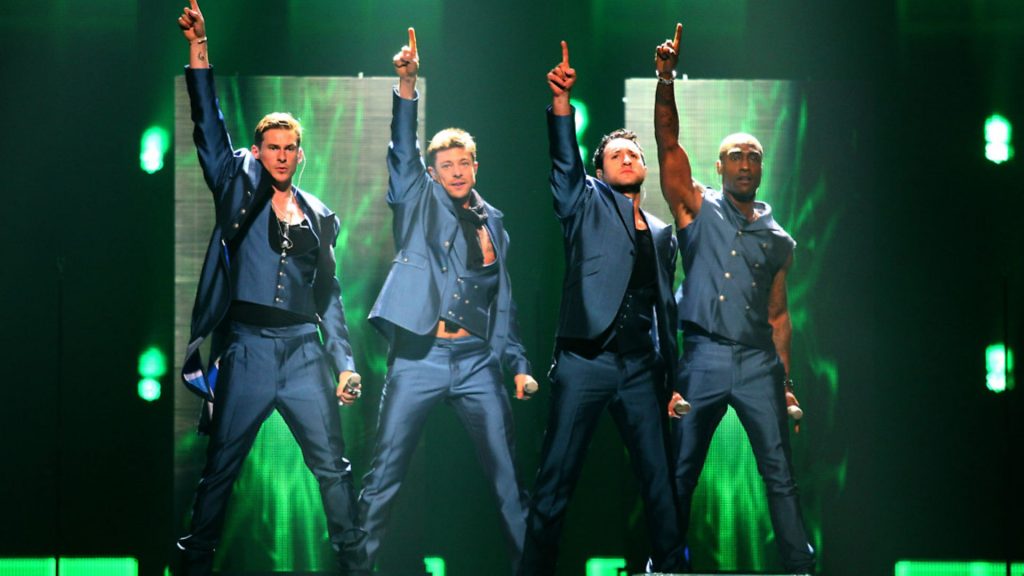
The UK public can’t seem to look at Eurovision without seeing a certain British victory stymied only by a continental conspiracy. Whether it’s ‘Of course, it’s all political!’ or ‘All those Eastern countries just vote for their mates!’ Or even the hoary old ‘No one votes for us because of the war!’ It’s always the same story – the UK entry isn’t feted by the rest of the continent simply because, well, it’s British. But is it true?
Are the Eurovision odds really stacked against us, and, if so, is there anything we can do to beat them? The first step to finding out is to get the age-old moans out of the way first. According to this argument, no one ever votes for us because they don’t like the UK.
Alas, statistics suggest that this common assumption is far from the truth. A quick look at the points the UK has secured this century shows that we’ve gained them from every single country, bar two. And those were Monaco (who only had three goes at it anyway) and Montenegro (who have had nine chances to show us some love, but who almost entirely vote for songs performed in difficult time signatures and minor keys. And to put this into perspective – just how many points did the Montenegrin jury decide to give last year’s runaway winner, Portugal? Nul).
That leaves 45 countries who at some point over the last 17 years have ranked us in their top ten songs of the year. From Russia to Iceland; Bosnia to Portugal, wherever you care to think, we have received points from them. Actually, it’s even better than that. All 45 countries have given us points since 2010. Just not enough of them in any one year to really count.
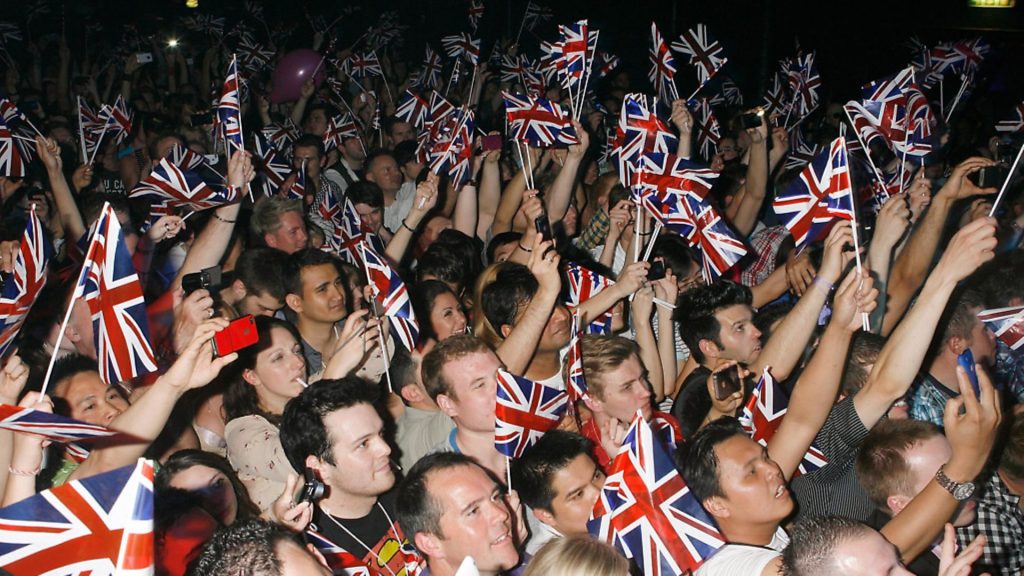
The picture is not quite as clear as it seems, then, and gets more complex. The data shows that we are far from being totally ignored by our fellow Europeans. Yet in 2017, although the UK made into the top 10 from the professional juries around Europe, we got just a measly 12 points from voters at home. Portugal got 376. So perhaps Terry Wogan was right. Maybe countries do all cobble together to help each other, and we’re just an unpopular nation without friends to rustle up any kind of significant voting bloc.
But before the self-pity sets in, we can dismantle this argument in seconds. What happened to UK in the televote happened to almost everyone. Ten countries in 2017 hoovered up almost all the public vote. Which means – essentially – that there was a high uniformity of voting behaviour across Europe (and Australia). This wasn’t some kind of diss aimed squarely at UK. So what is it, then?
It is worth remembering that around one-in-four albums sold worldwide in the last few years are by British artists. OK, so that’s mainly Adele and Ed Sheeran, but the inescapable point is that Europeans like British pop music. So sending a text message wouldn’t seem to be beyond them.
The usual excuse is ‘it’s all politics’ – a variation on ‘it’s all because of Iraq’, the excuse trotted out in 2003, when Jemini famously got nul points. Even their songwriter waded in. ‘I think politically we are out on a limb at the moment. As a country, I think we paid the price,’ opined Martin Isherwood. We were, said Terry Wogan ‘suffering from a post-Iraq backlash’.
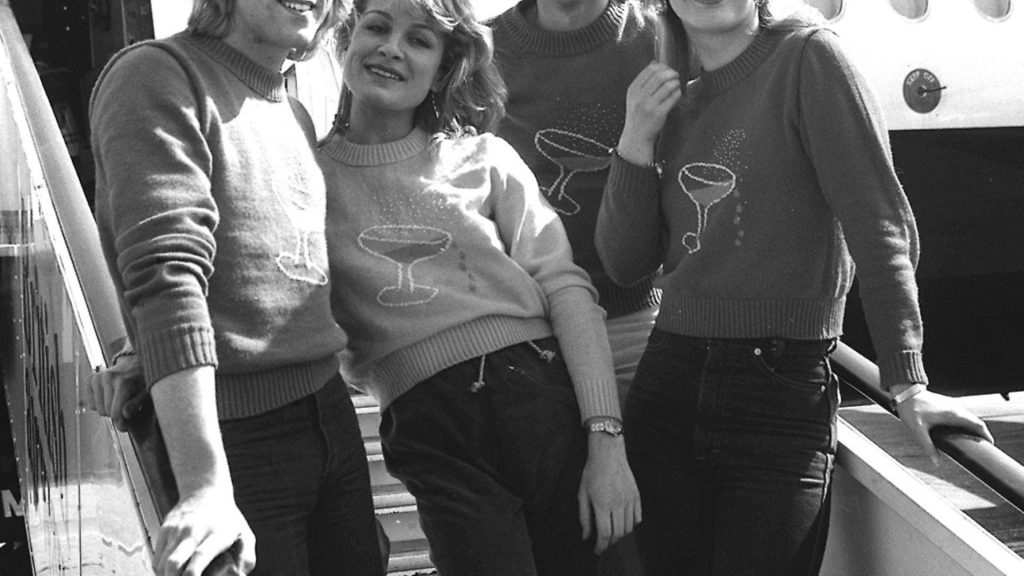
Yet anyone who has ever seen Jemini’s performance knows exactly what really got us a big fat zero. Louis Walsh, no stranger to Eurovision success, put it best. ‘It was just terrible. That is why they got no votes.’ Latvia’s Eurovision host that night, Marie N, went further, asking us at the end of that show, ‘We heard the two British singers were just taken off the street. Is it true that they’re not real singers?’
So if we are not going to mention the war any more, what about those oft-cited ‘voting blocs’? Do they exist and is our problem that we are not in one?
Well, kind of. It is not so much that certain countries vote for each other because they’re friends, it’s more because different regions have particular likings for certain sounds and chord structures. The countries of the former Yugoslavia are always getting accused of divvying out the votes among themselves – but it would be hard to argue that Serbia, Bosnia and Croatia are the closest of friends. Rather, they share a common ear.
If you listen to the music on their streets, you will hear the same unfamiliar time signatures in minor keys. The other thing worth considering is that these are relatively small countries, so if you are a star in one of them, there is a high chance you will be a star in the neighbouring ones too.
You find something similar in former members of the Soviet Union, and their closest satellites. Again, minor keys and gloomy outlooks are the most valuable currency in Russian-flavoured pop, and a quick look at the local music stations will show you that there’s a definite style of music that goes down well in those parts. It is a concept called cultural constancy, is certainly a factor in certain regions of Europe.
As Andy Mikheev, a Kazakhstani journalist and editor of ESCKaz – the most popular Russian language Eurovision site on the internet – explains: ‘In most of the ex-USSR the music from Russia is still the most popular. People tend to watch Russian language TV channels because of the high quality of their programmes, and listen to Russian radio too. So when a well-known artist represents Russia at Eurovision they are bound to be well supported from all across the region.
‘The former Yugoslavian republics are a clear example of cultural unity in musical taste. So when people are voting for other countries from the region they are voting for the typical music that they are used to and not really thinking of the name of their neighbouring country.’
It is why even the uninitiated can usually tell the difference, on first listen, between a Scandinavian song, a Balkan one, or one from the Iberian peninsula. When these countries reward one another, they are not really voting for their friends, they are simply supporting a sound they like and are familiar with.
But this cultural constancy can sometimes backfire. Two years ago, Sweden shunned the usual Scandipop for Frans’ If I Were Sorry. A standout tune and a big streaming hit across Europe on Spotify, but closer to an Ed Sheeran/Justin Bieber mash-up than anything recognisably Swedish. While it scored hugely across the continent, Norway ignored it. Their jury, which you would expect to favour the neighbours if the voting bloc theory always holds, gave it nul points. And even in the televote it just scraped a few.
A variant of the ‘bloc-voting’ argument, when explaining the UK’s recent poor showings, has been the arrival on the Eurovision scene, since the turn of the century, of countries from Eastern Europe. The case is made that this has coincided with Britain’s dip. Indeed, the influx from the east does seem to have had some bearing, but not necessarily in the way you might think.
While we in the west of Europe – and especially in the UK – view the contest through a heavy irony filter, the newer, eastern entries aren’t hamstrung by such attitudes. They simply send their biggest, or most promising, pop stars. To them it’s a music show, first and foremost. For British viewers it’s strictly Saturday night light-entertainment fluff. And there lies the heart of the matter. The core problem is with us, the UK. We see Eurovision as a warm and comfy piece of nostalgia, rather than what it is – a state-of-the-art microcosm of European music right now.
And it’s not just that we don’t take it seriously, the UK is also behind much of the continent when it comes to performing. Most of the more successful countries in recent years have a history of national song competitions that we just don’t have. Artists from the far side of the old Iron Curtain are brought up on highly competitive singing festivals from an early age, so the concept of music as a spectator sport is more instilled in them. By the time they take to the Eurovision stage they’re really very good at it. People even follow the careers of the tots in the junior song contests as they grow up and mature into the Eurovision national finals.
There is a similar scene in Scandinavia. Sweden’s biggest Saturday night television show of the year is Melodifestivalen. On six successive Saturday nights, in live shows across the country, 40% of the entire population tune in to pick their entry. Twenty eight acts take part in heats, semi-finals and a final – all performing original songs, showcasing the most innovative staging, many with songs from globally successful songwriters and producers. Stars come back year after year to perfect their Eurovision act. Sweden even bring in a host of international juries to vote, to make sure their act has wide appeal. The UK has Katrina out of 1997 winners Katrina and the Waves giving her opinion to Mel, formerly of The Great British Bake Off.
The successful Eurovision countries are therefore in stark contrast to the UK. We have little more than The Voice, The X Factor and Britain’s Got Talent. These formats build up nobodies and then break them down in such a quick way that many contestants are stained with perceived failure before their careers even get going.
Our music television contests revolve around middle-of-the road karaoke and highly auto-tuned covers of pop standards, not new and original music in live settings. And as fun as that is, it is hardly a good grounding for long-term popular success or performing in front of 10,000 people and a television audience of 100 million plus.
We’ve already established that Europe does enjoy UK songs and is willing to give us points… just not enough to give us a decent finish. So why is that? A look at the recent years when we have gained our better results offers up some interesting data. And a simple insight. Our two highest rankings in the last decade came from acts who were pretty well known to Europe at large:
Jade Ewan, in 2009. OK, so a pre-Sugababes Jade Ewan may not have been too big a name in 2009, but having Lord Lloyd-Webber at the piano by her side and penning the song surely was a contributing effect to dragging her up into fifth place. It made us look serious. That we’d put a bit of effort in.
Then, two years later, Blue, the grown-up boyband who came in at a semi-respectable 11th place. And had they not been almost totally ignored by the juries, and been judged on televotes alone, Blue would have been placed in a more than respectable fifth place. So there is something to be said for having well-known, vaguely current acts participating for your country. And we said ‘vaguely current’ before you cite the Engelbert Humperdinck-Bonnie Tyler factor.
And this isn’t something that just applies to the UK. After a win and a smattering of second and third places, Eurovision is no longer a shiny new prize for Russian artists either. While a few years back it was seen as an excellent branding opportunity for Russian record labels, now they have the same worries as British ones. Like, what if we send one of our big artists and they don’t score well? Why would we bother?
As one of the biggest financial contributors to the contest’s coffers, Britain – alongside the host nation and the rest of the ‘Big Five’ (Italy, France, Germany and Spain) – get a free pass to the final. This is supposed to be an advantage. But we would argue it is one of the biggest single stumbling blocks to UK success.
These days there is such hype, streaming, live shows and media coverage of the two weeks of the Eurovision event that these six entries just don’t have the chance to build up a following throughout Europe through the semi-final process. Aside from Germany in 2010 none of the pre-qualified countries have managed a win. They all come to the final a little worse prepared, comparatively under-rehearsed and without the confidence and visibility that comes from already winning a place in the hearts of voters and juries. If you look at 2017, Italy came into the contest the hot favourites, but by the time they came to rehearse and perform, a huge head of steam had formed around Portugal’s magical semi-final performance.
Eurovision just isn’t as important in UK as it is in some countries. ‘If we’re speaking about countries like Azerbaijan, Armenia, Georgia, Russia and Belarus then Eurovision is a question of national pride’ Andy Mikheev says. ‘It is not a secret that the political leadership of these countries are deeply involved in the selection of the entrants – those who they consider suitable to defend national colours. It would be hilarious to hear it said that the British prime minister was involved in the pre-selection of UK entry.’
Theresa May is not going to force Coldplay into representing the UK in the same way that, say, Vladimir Putin can ask t.A.T.u. or Russian superstar Sergey Lazarev to perform. Politics does certainly come into it more in other countries. In Ukraine, in 2011, there was a scandal surrounding the national selection, when the government-favoured contestant surprisingly won out over the two big favourites. In 2013, Russian foreign minister Sergei Lavrov said Azerbaijan’s failure to award any points to Russia was an ‘outrageous action’ that would not ‘remain without a response’.
But if there is little appetite in the UK for getting politicians involved in Eurovision, what might the future hold for the country? All the evidence suggests that with the right alchemy of song, performer and stage show, absolutely anybody can get close in this contest. Even the UK.
Just look at the winning songs from historically unsuccessful countries like Portugal (Salvador Sobral), Austria (Conchita), Germany (Lena, with Satellite), Finland (Lordi). Throw in the oh-so-near misses of under-achievers like The Netherlands (Common Linnets) Belgium (Loic Nottet) and Italy (top three places for both Raphael Gualazzi and Il Volo). If you get it right, it just doesn’t matter what part of Europe you come from.
Victoria Urbanovich, a Belarusian journalist who covers Eurovision every year, firmly believes that when a song is good, people will vote for it wherever they come from. ‘I think people vote for what they like or want to hear. When Dima Bilan won for Russia, many countries gave him high marks – they paid no attention to whether he was from the east or the west. And when a song is really great, like Alexander Rybak from Norway in 2009, or Sweden’s Loreen in 2012 they got high marks from the Eastern countries too.’
So unless we face the facts, UK’s 2017’s 15th place might be considered something of a high point. Whatever way we slice it, the simple fact is the UK doesn’t do well at Eurovision because we haven’t worked out how good you have to be to win these days. If we want that to change, this has to be the time for making your mind up.
Roy Delaney covers Eurovision for the Popbitch website
Additional research from Camilla Wright and Kit Lovelace
MORE: Michael Fabricant: Brexit should mean we leave EurovisionMORE: Subscribe to The New European for six weeks for just £1

